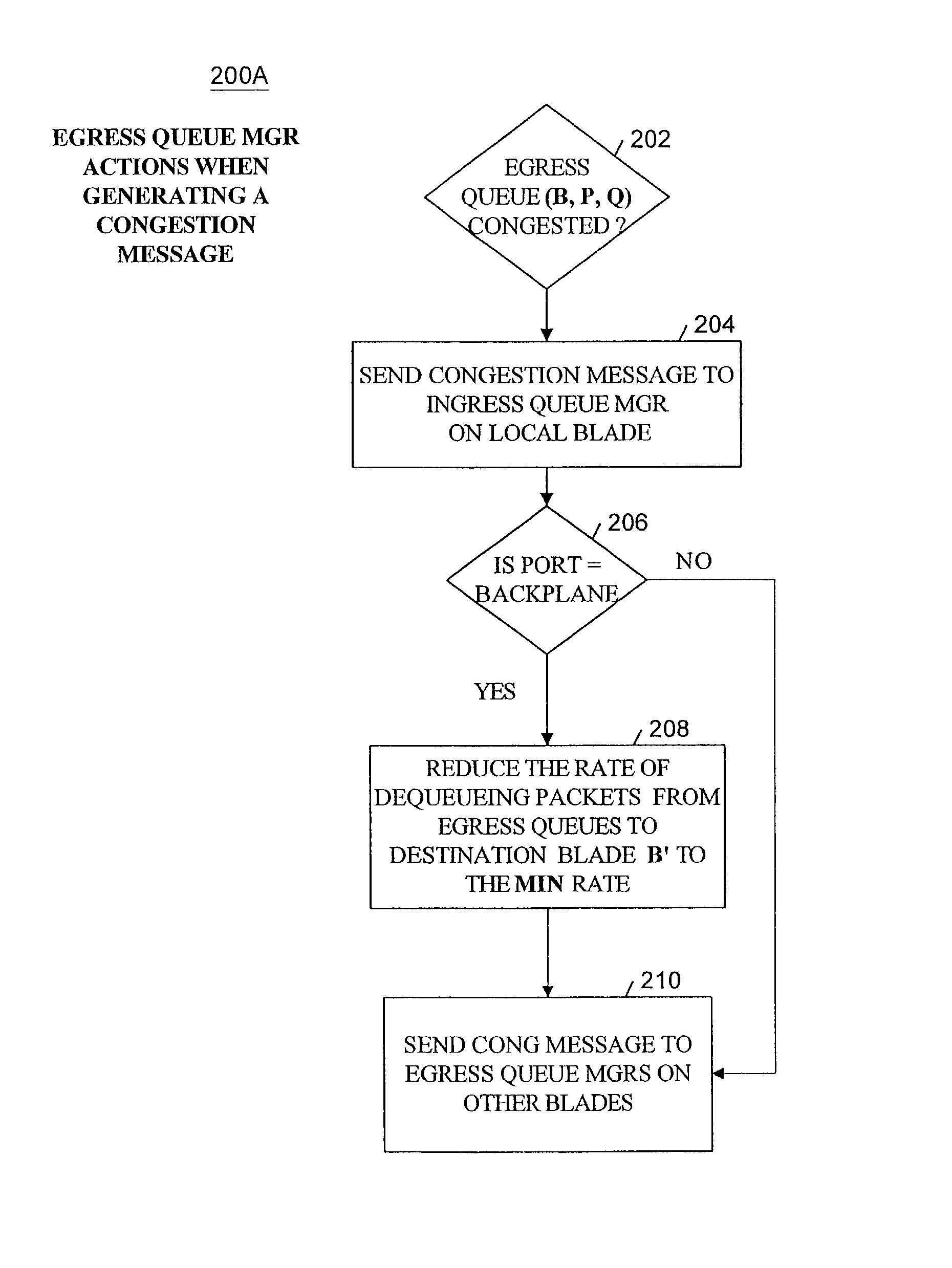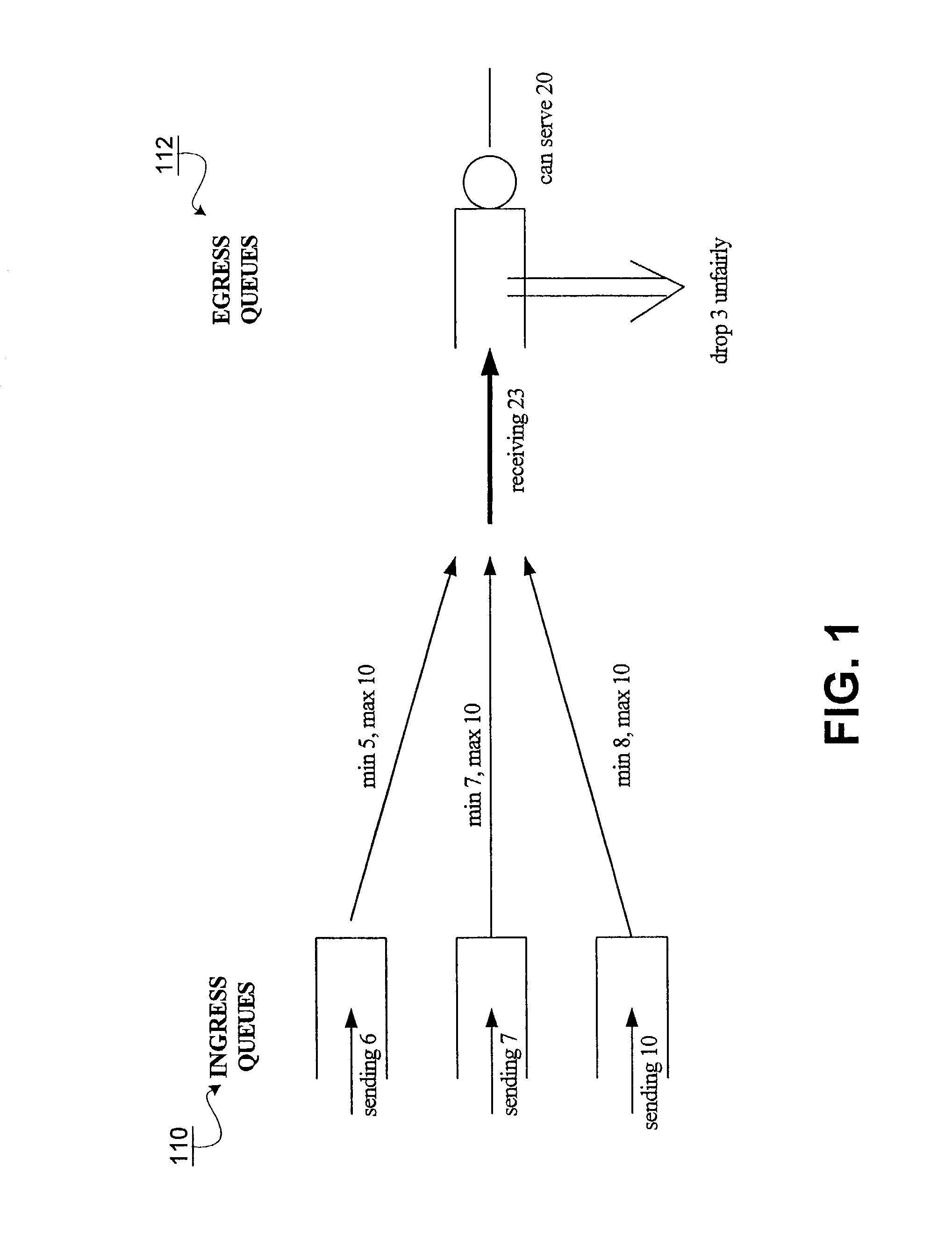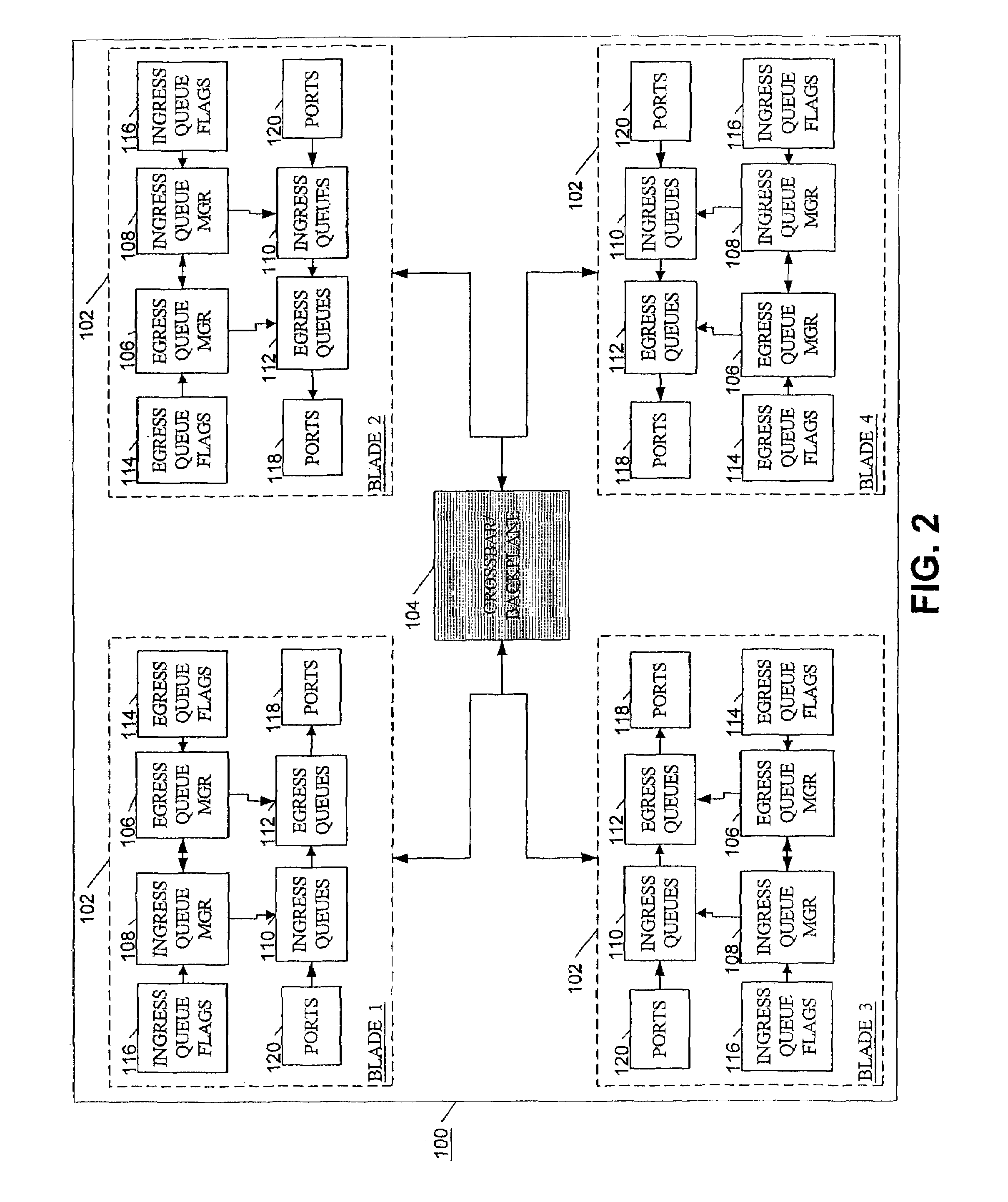Method and apparatus for providing quality of service across a switched backplane between egress queue managers
a queue manager and backplane technology, applied in the field of computer networks and internetworking communication technologies, can solve problems such as conflict, routers and other network devices are vulnerable to data packet traffic congestion, and routers to suddenly be inundated with a sharp increase in traffic, so as to increase the robustness of the messaging system
- Summary
- Abstract
- Description
- Claims
- Application Information
AI Technical Summary
Benefits of technology
Problems solved by technology
Method used
Image
Examples
Embodiment Construction
[0035]In the following description various aspects of the present invention, a method and apparatus for a messaging system to enable quality of service in a packet forwarding device, will be described. Specific details will be set forth in order to provide a thorough understanding of the present invention. However, it will be apparent to those skilled in the art that the present invention may be practiced with only some or all of the described aspects of the present invention, and with or without some or all of the specific details. In some instances, well known architectures, steps, and techniques have not been shown to avoid unnecessarily obscuring the present invention. For example, specific details are not provided as to whether the method and apparatus is implemented in a router, bridge, server or gateway, or as a software routine, hardware circuit, firmware, or a combination thereof.
[0036]Parts of the description will be presented using terminology commonly employed by those s...
PUM
 Login to View More
Login to View More Abstract
Description
Claims
Application Information
 Login to View More
Login to View More - R&D
- Intellectual Property
- Life Sciences
- Materials
- Tech Scout
- Unparalleled Data Quality
- Higher Quality Content
- 60% Fewer Hallucinations
Browse by: Latest US Patents, China's latest patents, Technical Efficacy Thesaurus, Application Domain, Technology Topic, Popular Technical Reports.
© 2025 PatSnap. All rights reserved.Legal|Privacy policy|Modern Slavery Act Transparency Statement|Sitemap|About US| Contact US: help@patsnap.com



